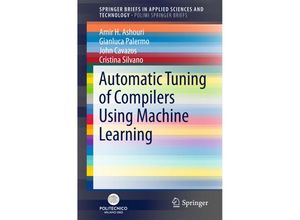This book explores break-through approaches to tackling and mitigating the well-known problems
of compiler optimization using design space exploration and machine learning techniques. It
demonstrates that not all the optimization passes are suitable for use within an optimization
sequence and that in fact many of the available passes tend to counteract one another. After
providing a comprehensive survey of currently available methodologies including many
experimental comparisons with state-of-the-art compiler frameworks the book describes new
approaches to solving the problem of selecting the best compiler optimizations and the
phase-ordering problem allowing readers to overcome the enormous complexity of choosing the
right order of optimizations for each code segment in an application. As such the book offers
a valuable resource for a broad readership including researchers interested in Computer
Architecture Electronic Design Automation and Machine Learning as well as computer architects
and compiler developers.

